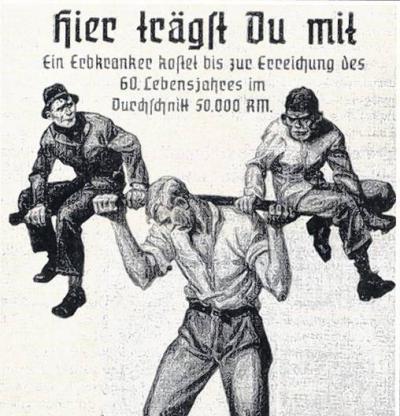Swagpilled
swagpilled
★★★★★
- Joined
- Aug 15, 2022
- Posts
- 8,145
A study from 1988 compares living conditions of celibate/unmarried people born in 1946.
8.4% of the men and only 4.6% of the women aged 35 at the moment of the study never married, compared to 17.5% of men and 22.7% of women born in 1901.

note that women are married less due to the male casualties from the 1914-1918 war.
Even back then, the study finds that most of the people describes as "involuntarily single" are single due to outside factors like mental disabilities.
Among the singles, 14.6% of men and 21.5% of women had special education as children, which indicates physical or mental disabilities, yet 4 out of 5 of the people described as "handicapped" married at some point in life. Perhaps the people who didn't marry were more severely handicapped. This statistic also doesn't include those who became handicapped later on in life. Due to an injury or accident for example.

not really alot to take from this graph, except that special ed kids rarely ever married and women with low levels of education had an easier time getting married compared to men of the same education.

this grap shows the percentages of singles at 35 whose parents were also singe at 36. not really sure what to make of this graph.
The study also found that singles were more introverted according to the extraversion test Maudsley Personality Inventory, completed at age 16. The test did not indicate that singles are on average more neurotic than married people, instead married women tend to be more neurotic than single women.

The majority of men who were single were unskilled or not working. The rest was evenly spread across the different levels of social/working class.
It also shows that finding a partner in the same social and working class was pretty difficult.

Also note that pretty much none of the single women were unskilled or not working. Indicating that unskilled/not working women didn't have problems getting a partner.
The high amount of single, high education women may also be attributed to the fact that they prefer pursuing a career over a family.
And at last, 32.2% of single men were living alone and 48.5% were living with their parents.
Of the male singles living with their parents, 59% only had a single parent, though it's to be expected with the high male mortality rate at the time. 3 out of 4 were living with a lone mother.
26% of the men living with their parents were not in employment (NEETs).
In the special ed group 64% of men were living with their parents and 20% were in institutions (religious, hospitals, prison, etc.) leaving only 16% of handicapped men not living with their parents or in an institution.

Conclusion
An important minority of singles is handicapped.
Also celibates tend to be more introverted and have parents that married at older ages.
In general the outside factors play a big part in the celibacy state of a person, more than the personality itself.
tl;dr:
"This study, which uses life history data for a British cohort born in 1946, shows that an important minority are 'handicapped' and these adults are cared for primarily by their families, in particular by elderly parents. Celibates tend to be more introverted, ambitious and to have older marrying parents than their ever-married peers. Single women differ from single men. The women are more likely to be of higher ability, to be graduates and to be in high status occupations whilst single men are more likely to be members of the lowest social class or unemployed. The great majority of single people live either with their parents or on their own."
Full:
8.4% of the men and only 4.6% of the women aged 35 at the moment of the study never married, compared to 17.5% of men and 22.7% of women born in 1901.
note that women are married less due to the male casualties from the 1914-1918 war.
Even back then, the study finds that most of the people describes as "involuntarily single" are single due to outside factors like mental disabilities.
Among the singles, 14.6% of men and 21.5% of women had special education as children, which indicates physical or mental disabilities, yet 4 out of 5 of the people described as "handicapped" married at some point in life. Perhaps the people who didn't marry were more severely handicapped. This statistic also doesn't include those who became handicapped later on in life. Due to an injury or accident for example.
not really alot to take from this graph, except that special ed kids rarely ever married and women with low levels of education had an easier time getting married compared to men of the same education.
this grap shows the percentages of singles at 35 whose parents were also singe at 36. not really sure what to make of this graph.
The study also found that singles were more introverted according to the extraversion test Maudsley Personality Inventory, completed at age 16. The test did not indicate that singles are on average more neurotic than married people, instead married women tend to be more neurotic than single women.
The majority of men who were single were unskilled or not working. The rest was evenly spread across the different levels of social/working class.
It also shows that finding a partner in the same social and working class was pretty difficult.
Also note that pretty much none of the single women were unskilled or not working. Indicating that unskilled/not working women didn't have problems getting a partner.
The high amount of single, high education women may also be attributed to the fact that they prefer pursuing a career over a family.
And at last, 32.2% of single men were living alone and 48.5% were living with their parents.
Of the male singles living with their parents, 59% only had a single parent, though it's to be expected with the high male mortality rate at the time. 3 out of 4 were living with a lone mother.
26% of the men living with their parents were not in employment (NEETs).
In the special ed group 64% of men were living with their parents and 20% were in institutions (religious, hospitals, prison, etc.) leaving only 16% of handicapped men not living with their parents or in an institution.
Conclusion
An important minority of singles is handicapped.
Also celibates tend to be more introverted and have parents that married at older ages.
In general the outside factors play a big part in the celibacy state of a person, more than the personality itself.
tl;dr:
"This study, which uses life history data for a British cohort born in 1946, shows that an important minority are 'handicapped' and these adults are cared for primarily by their families, in particular by elderly parents. Celibates tend to be more introverted, ambitious and to have older marrying parents than their ever-married peers. Single women differ from single men. The women are more likely to be of higher ability, to be graduates and to be in high status occupations whilst single men are more likely to be members of the lowest social class or unemployed. The great majority of single people live either with their parents or on their own."
Full:








